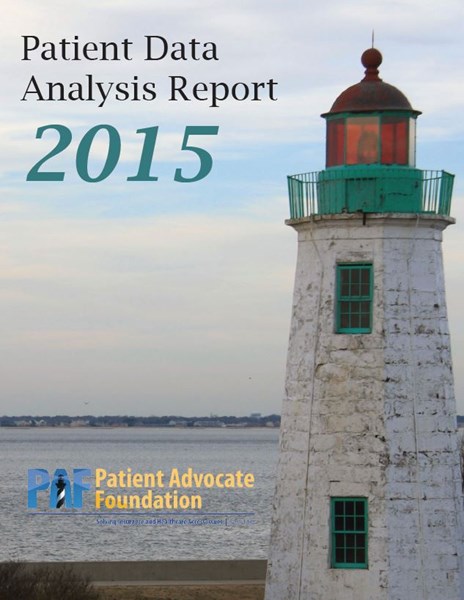HAMPTON, VA., June 16, 2016 (GLOBE NEWSWIRE) -- Medical debt and transportation top the list of problems reported by patients in 2015, according to a report released today by the Patient Advocate Foundation (PAF), one of the nation's premier non-profit organizations offering support for patients with chronic, life-threatening or debilitating diseases who face barriers to accessing quality, affordable health care.
The 2015 Patient Data Analysis Report (PDAR) provides de-identified data on the 80,596 patients PAF served in 2015, spanning more than 500 different diseases within its direct patient services division.
Medical debt continues to disproportionately burden low-income patients, according to the data. Patients whose annual household income was under $11,000 experienced an average medical debt of $4,783, or 43 percent of their total household income. Patients with a cancer diagnosis reported the highest medical bills, on average, totaling $7,657, likely due to the high costs for specialized treatment for this group.
Even smaller costs caused great barriers to care. Approximately 15 percent of all patients who contacted PAF could not afford their transportation expenses—and thus could not get to their site of care—and yet the average cost for transportation in rural areas was only $19.62 per way.
"For many people, $19.62 is a trip to the movies without popcorn. But for thousands of Americans, $19.62 means that they can't afford the gas to get the chemotherapy to treat their cancer," said Alan Balch, Ph.D., Chief Executive Officer of PAF and its advocacy affiliate, National Patient Advocate Foundation. "We must invest in both traditional and innovative transportation initiatives to overcome what is really now a health crisis in America."
Other prominent difficulties cited by PAF patients include:
- Pharmaceutical access issues
- Lack of health coverage
- Insurance barriers, such as prior authorization requests
- Disability issues
Highlighting the intense obstacles most patients must overcome to settle a dispute or access appropriate health care, the professional case managers at PAF made an average of 21.61 contacts—mainly via telephone—per case to help their patients.
"The PDAR spotlights the experience of an important and often overlooked segment of the US patient population," said Balch. "We encourage policymakers to use this data to understand the patients they serve and to work with us to come up with solutions to the problems they face every day."
To read or get more information surrounding PAF's 2015 Patient Data Analysis Report, visit www.patientadvocate.org/pdar to download or view.
About Patient Advocate Foundation (PAF): Established in 1996, Patient Advocate Foundation assists patients who have been diagnosed with serious illness overcome healthcare access barriers. PAF provides in-depth sustained assistance through personalized case management, financial support, and connection to critical community resources, all at no cost to the patient or their caregiver. For more information about Patient Advocate Foundation and its mission to improve health access to all patients, visit www.patientadvocate.org or call 1-800-532-5274.
A photo accompanying this release is available at: http://www.globenewswire.com/newsroom/prs/?pkgid=40615
